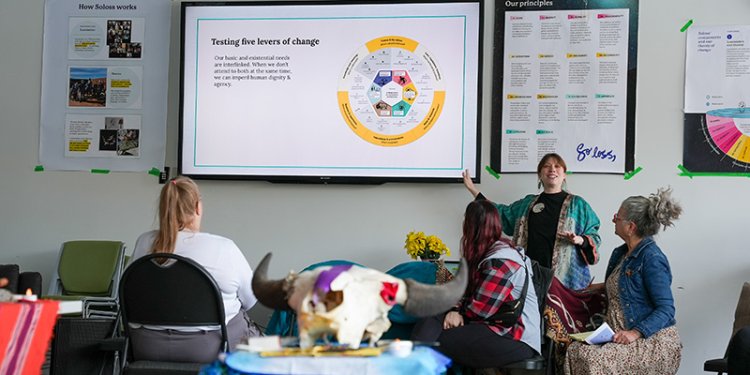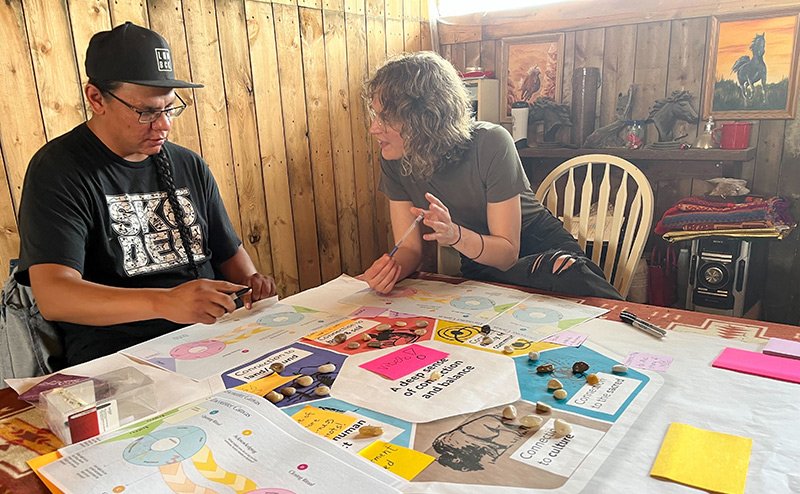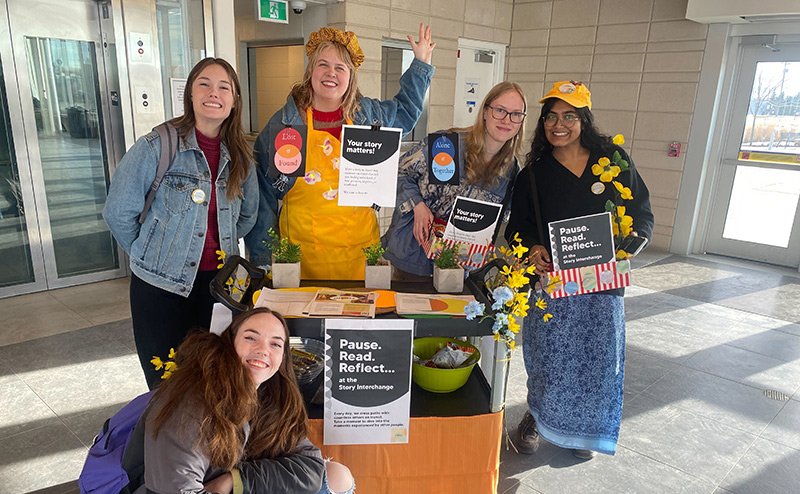Eighty-seven profiles of street-involved people were created during 5 stints of ethnographic research conducted by InWithForward between 2017 and 2022.
The researchers spent time with them in places across the city. They got to know them, learned about their challenges, their joys and their stories.
This ethnographic research informed the well-being framework as well as the prototypes that were developed with community partners.
Ethical Considerations
Each person profiled has given consent to share their information. Some people have chosen to change their names and not have their images used. When reading the profiles, there are a number of ethical considerations that need to be taken into account:
Read them to understand another perspective and to help understand the state of affairs better. This could help with reframing situations and problems, and can shine a light on aspects of issues that haven’t come up before in other ways.
The playback books and trend reports, which aggregate the data from the profiles - identify segments of people and opportunity areas - show what could be, not just what is. They spark alternatives and identify opportunities for action. The information in the profiles and playback books can point to the need for further research and can offer insights that are relevant to making Edmonton a better city, more inclusive and compassionate, as well as one with more effective services that lead to better outcomes.
Be aware of your own reactions and assumptions. Readers should be trying to understand another perspective and be aware of their own biases when interpreting the stories. This is important because concepts like well-being are especially shaped by worldview and perspective. What it means to live well is shaped by our cultural, spiritual, linguistic and philosophical frames.
They have chosen to share them with us. They hope that sharing their stories will help decision makers to develop better practices and better policies.
In reading these stories, you will catch glimpses of different ways of living, surviving, thriving, caring, supporting, organizing and governing. They might go against the grain of dominant norms and narratives. They might challenge what you think you know about a given situation. As you read, consider who the dominant norms and narratives serve, and consider how we can activate the gifts and strengths of those who are often labelled as vulnerable.
In 2020, the Recover team worked together with their ethnographer to sift through all the research and learnings from earlier years and put together a well-being framework to guide them in their work. The resulting document was a deep dive that explained what the team really meant by urban wellness and well-being and why.
It combines the stories and lived experiences of street-involved Edmontonians and draws on their wisdom about what well-being means through their eyes. It also pulls together cultural and philosophical teachings from around the world and from Indigenous Peoples, to provide a deep understanding of how well-being can be better achieved.
Elements of this framework have been incorporated into the City’s Community Safety and Well-being Strategy.
A Guide to Indigenous Concepts of Wellness and Well-being: This is a companion document that provides more in-depth insight, specifically focused on Indigenous perspectives.




